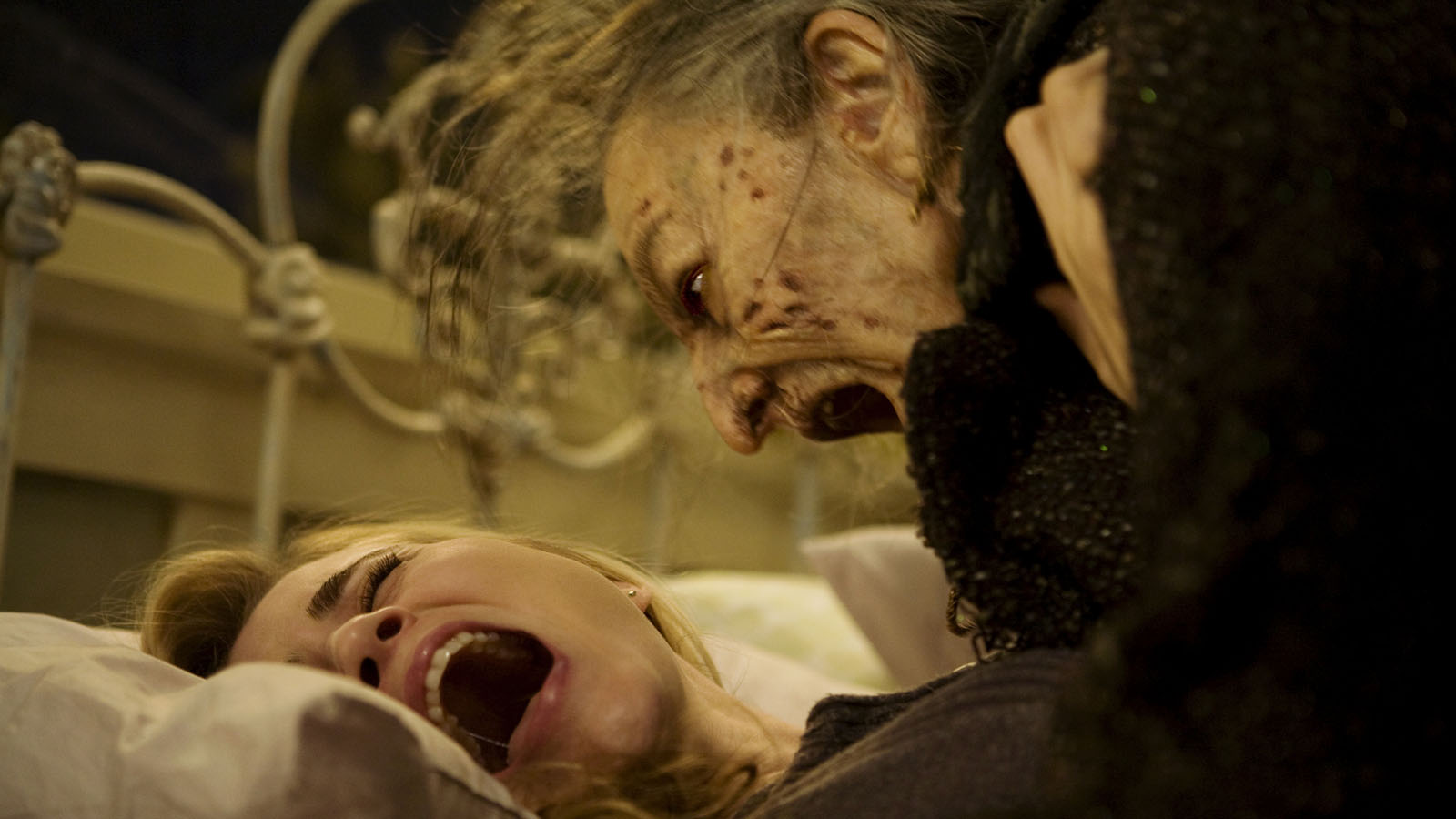
In 2009, Sam Raimi, the beloved cult-horror auteur of the Evil Dead films turned idiosyncratic mainstream genre director, unexpectedly released his best post-trilogy horror film. Drag Me to Hell is one of the fleetest, most unreasonably entertaining studio horror movies of the 21st century, combining two traditions of horror morality tales: the punchy, disreputable EC Comics incarnation and the classic scary-story lineage of British writer M.R. James. Inspired by James’s great 1911 story “Casting the Runes” (which also inspired 1957’s Night of the Demon, by Jacques Tourneur), in which a meek historical researcher is hexed by a mischievous occultist and haunted by a terrifying spirit, Drag Me to Hell centers on Los Angeles bank-loan officer Christine (Alison Lohman), whose life and eternal soul are put into severe jeopardy after she makes one bad, self-interested decision: to refuse a mortgage extension to Mrs. Ganush (Lorna Raver), an elderly woman delinquent on her loan payments, in the hopes of proving her professional toughness and securing a promotion. In retaliation, the vengeful older woman, a member of the old-world European Roma community, curses Christine, who is subsequently terrorized by an ancient demon called a Lamia.
Fueled by Lohman’s authentically panic-stricken performance and Raimi’s expertly administered shocks and gross-outs, Drag Me to Hell is perched on the knife-edge between satire and earnestness. The film is at once delirious and unsettling, a negotiation of tones that never tips over too far into one or the other. In the great Val Lewton B-movie tradition, Raimi is particularly skilled at building tension through inference and off-screen sounds. As the days pass and Christine’s anxiety increases, the Lamia gets closer and closer, but we never actually see the demon on-screen. Instead, Raimi amps up the fear by centering Lohman’s full-bore intensity and the promise of a Biblical fate worse than death if she doesn’t find a way of reversing the curse. Rarely one to pull his punches, Raimi delivers the goods all the way to the notorious final moments, which giddily reject the happy conclusion one might expect from a mainstream horror show yet grants viewers a different kind of satisfaction.
It’s this ending that fans—and maybe detractors—of Drag Me to Hell will likely first recall when thinking of the film. Not only does it provide a lasting gut-punch, but it also reveals Raimi’s movie as the morality tale it is. In its own pulpy way, Drag Me to Hell is a serious-minded inquiry into what it means to be a good person, whether the film thinks Christine “deserves” her fate or not. (For the record, Raimi thinks she does not.) Was her act of self-interest a reflection of evil greed, or was it just a momentary slipup? And is either sin truly unforgivable? If the extreme events depicted in Raimi’s film aren’t to be taken literally, then one can see the movie as a rather sobering take on the small and large decisions that humans make on a daily basis, specifically in a capitalist society that’s by design disinterested in humanity. That Raimi smuggles such provocations into a movie in which a woman’s head is squished by an anvil until her eyeballs pop out is testament to his singular style and substance. 🩸
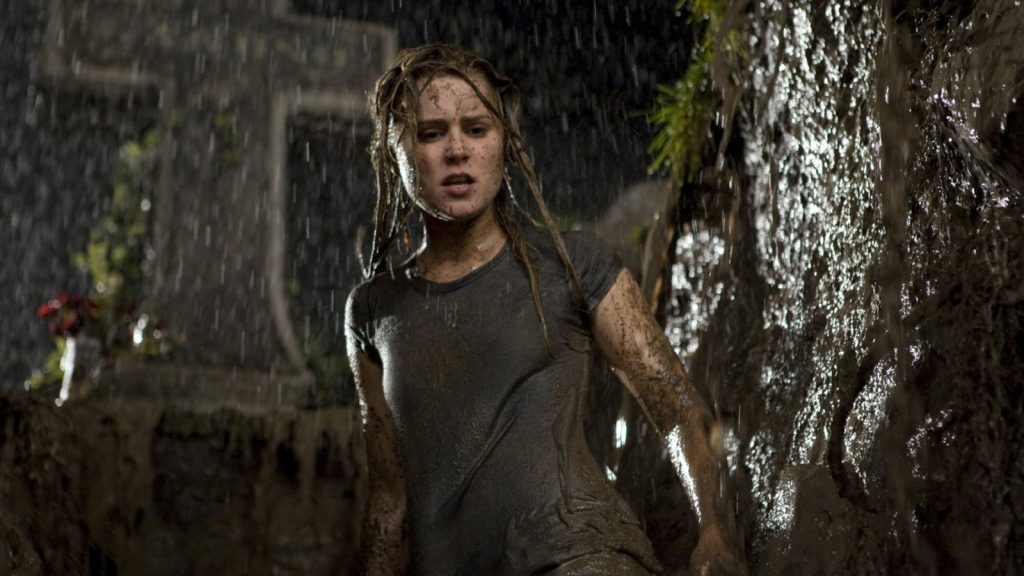
is Editorial Director at Museum of the Moving Image; cofounder and editor of the online film magazine Reverse Shot, a publication of MoMI; a longtime contributor to The Criterion Collection, where he programs the Criterion Channel series “Queersighted”; and the author of Films of Endearment (Hanover Square Press, 2021).
Suckers for crazy-ass voodoo curses that travel down female family bloodlines should delight in The Kiss, a film that got lost among the wealth of 1988 horror gems like Child’s Play, The Blob, and Pumpkinhead, and still hasn’t found its rightful place in the pantheon.
BY LAURA KERN | October 31, 2022
One of the earliest memories I have is of my father pointing to an abandoned rowboat in Dublin’s River Tolka and quite matter-of-factly stating that “a monster lives in there.”
BY GLENN McQUAID | October 31, 2021
There is a lot of misdirection in David Prior’s ambitious, scary, and exhilaratingly convoluted The Empty Man. For its first 20 minutes it plays like lost-in-the-wilderness adventure horror, following a a group of American friends backpacking through the mountains of Bhutan...
BY MICHAEL KORESKY | October 31, 2021
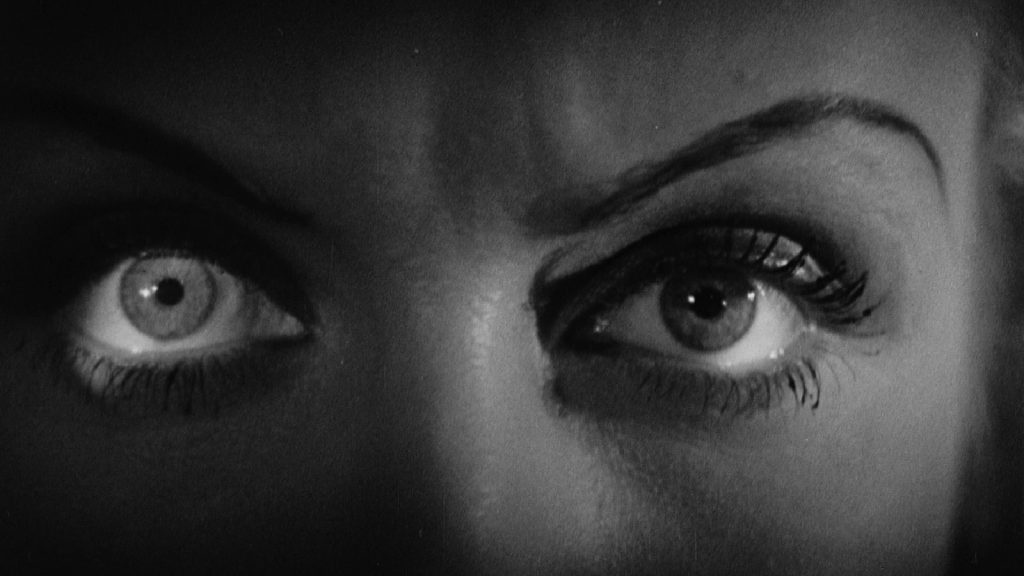
This pre-Code offering packs a lot of story into its typically brisk running time, with several plot threads weaving together a (not always successful) tapestry of spooky and criminal doings.
READ MORE >
BY ANN OLSSON | Month 00, 2021
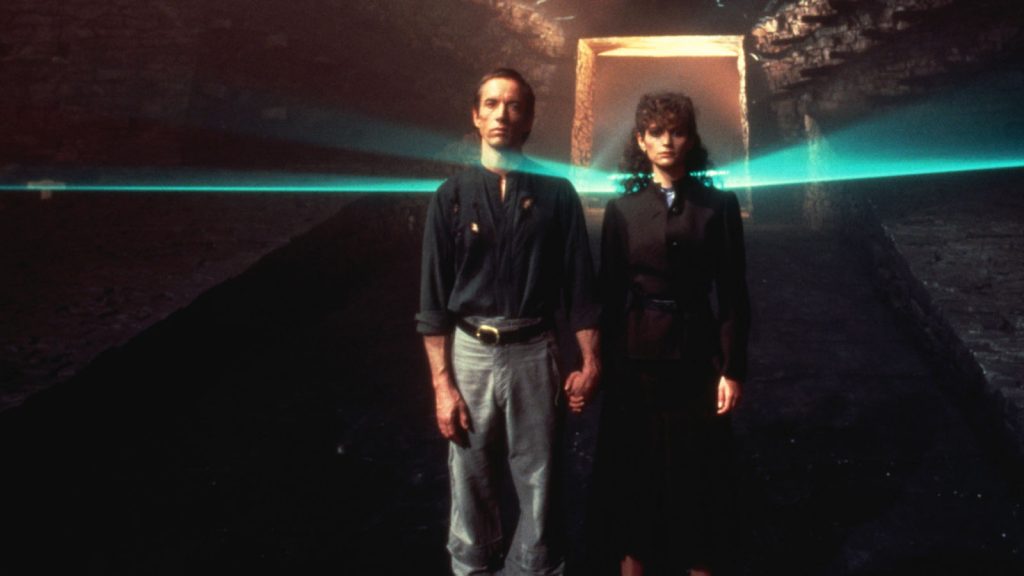
In what could be the fastest-resulting rape revenge movie, a drunken lout brutally forces himself on Ida, the young woman who doesn't return his affections, during a party over Labor Day.
READ MORE >
BY LAURA KERN | Month 00, 2021
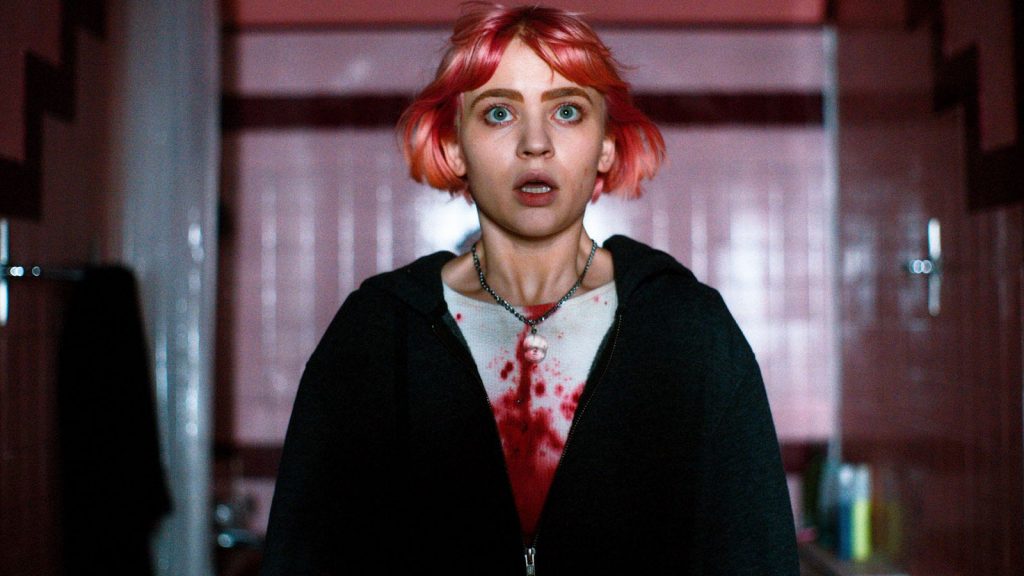
Beast is a lot of movies in one package - fractured fairy tale, belated-coming-of-age story, psychological drama, regional horror film - but above all it's a calling card for its leading lady, Jessie Buckley.
READ MORE >
BY LAURA KERN | Month 00, 2021